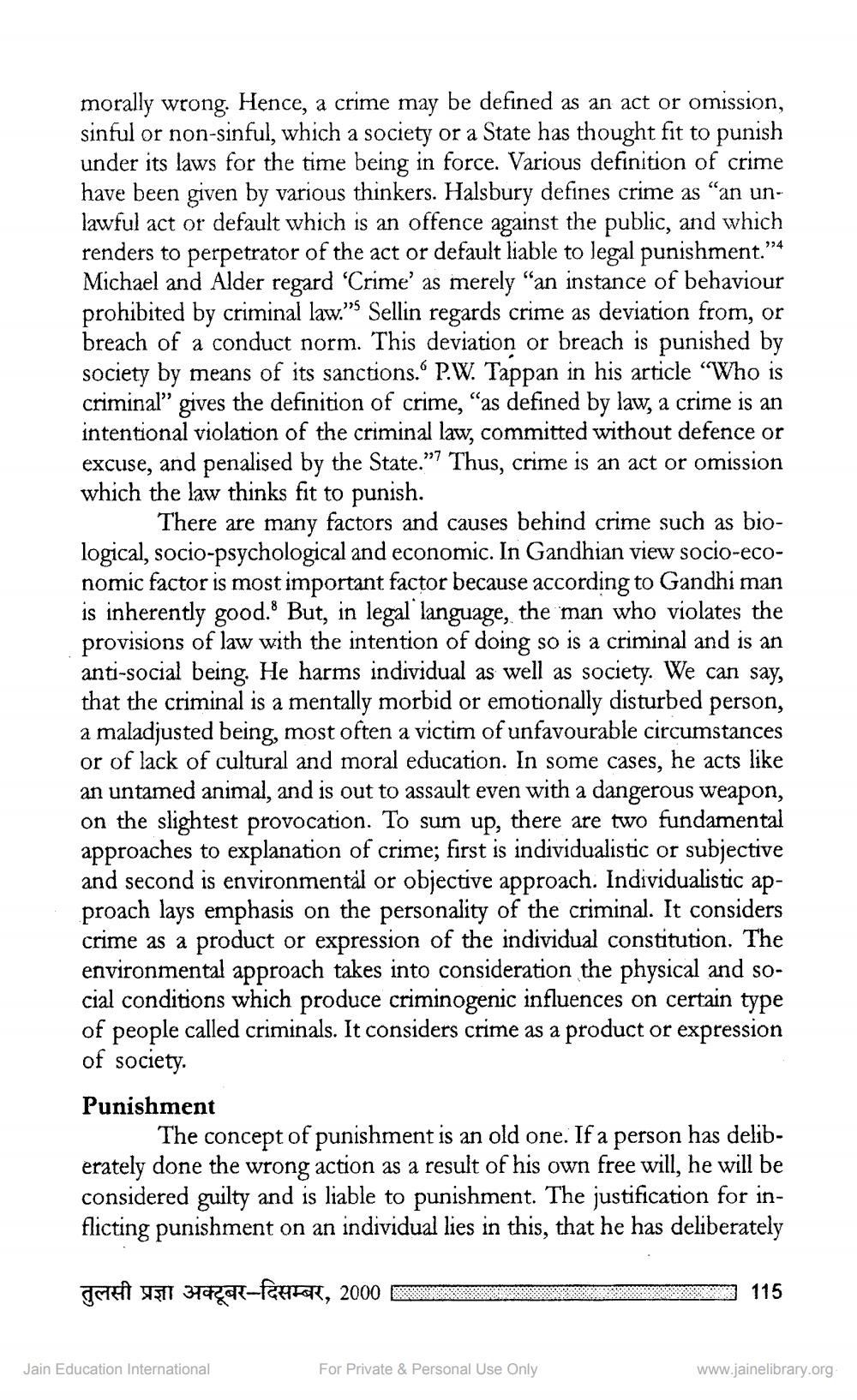________________
morally wrong. Hence, a crime may be defined as an act or omission, sinful or non-sinful, which a society or a State has thought fit to punish under its laws for the time being in force. Various definition of crime have been given by various thinkers. Halsbury defines crime as "an unlawful act or default which is an offence against the public, and which renders to perpetrator of the act or default liable to legal punishment.” Michael and Alder regard 'Crime' as merely "an instance of behaviour prohibited by criminal law.” Sellin regards crime as deviation from, or breach of a conduct norm. This deviation or breach is punished by society by means of its sanctions. P.W. Tappan in his article “Who is criminal” gives the definition of crime, "as defined by law, a crime is an intentional violation of the criminal law, committed without defence or excuse, and penalised by the State.” Thus, crime is an act or omission which the law thinks fit to punish.
There are many factors and causes behind crime such as biological, socio-psychological and economic. In Gandhian view socio-economic factor is most important factor because according to Gandhi man is inherently good. But, in legal language, the man who violates the provisions of law with the intention of doing so is a criminal and is an anti-social being. He harms individual as well as society. We can say, that the criminal is a mentally morbid or emotionally disturbed person, a maladjusted being, most often a victim of unfavourable circumstances or of lack of cultural and moral education. In some cases, he acts like an untamed animal, and is out to assault even with a dangerous weapon, on the slightest provocation. To sum up, there are two fundamental approaches to explanation of crime; first is individualistic or subjective and second is environmental or objective approach. Individualistic approach lays emphasis on the personality of the criminal. It considers crime as a product or expression of the individual constitution. The environmental approach takes into consideration the physical and social conditions which produce criminogenic influences on certain type of people called criminals. It considers crime as a product or expression of society. Punishment
The concept of punishment is an old one. If a person has deliberately done the wrong action as a result of his own free will, he will be considered guilty and is liable to punishment. The justification for inflicting punishment on an individual lies in this, that he has deliberately
got 451 37aça-Fantare, 2000 BARES
115
Jain Education International
For Private & Personal Use Only
www.jainelibrary.org




